I remember watching ‘I Robot’ for the first time — I loved it. I loved the robotics, the cars, the automation, everything. But do you know what I didn’t realize? — without it, people would be immobile. Futile. Vegetative. Simply, helpless and hapless. As much as I love to look at my phone first thing in the morning, I make sure it is just to check the drop down of notifications and not delving into even one immediately. As much as I love to write on a daily basis (and also window-shop on the side), I make sure to get a 15-minute breather, on the hour.

But what of those that have been introduced to the internet in this day and age? What of the PUB-G gangs, the kids that thrive on cartoon videos just so that they can be fed lunch by the lazier adults? There is room for change, but have we realized it yet? The internet has, in my opinion, broken us — and we don’t even know it. Technology, as we know it, controls us — tells us what our day will be, determines how we should feel about it, and coerces us to go a few minutes more on social media before getting some shut-eye. But, if we actually try, we can reduce our screen time.
Scroll through your phone for 10-minutes and then keep it aside for the next 30 — can you do it? While working, type and stare at your screen for 45 minutes, spend the last 15 of the hour walking in your balcony or down in the street. Get some air, some freshness, look far and near. Can you do it?
As science and technology have evolved over the decades, so has our lifestyle. From basic needs to luxury, almost every facet of our lives is impacted by the internet. Further on, our lives will be even more dependent on technology, devices and the internet. Our current ‘network society’ is a web of digital revolution and socio-cultural changes. Individual growth and decline are both products of global digitization. While it is an excellent tool for education, work and a social life with entertainment, overuse can take a toll on your health. For example, when we have a little cough and some other issues, instead of ringing up our GP’s like old days, we turn to the ‘world-wide-window’ for a quick peek into the possible infections by listing down our symptoms. Up until a few months ago, a common cold was just a common cold, but today, it is a symptom of Coronavirus — we did not know that. So, can you imagine the range of infections that the internet can sum up for your little symptoms?
When it comes to social media — it is healthy to keep in touch with your friends, and to find more. But what is not healthy is — posting every movement of your life on it; scrolling blindly to kill time. If killing time is the criteria, I believe looking out to the sky is more pleasing or taking a short walk wherever you are will help your bones and muscles. More often than not, social media ends up being the platform where we seek validation — for our actions, our opinions and our lifestyles. But I ask — do we really need someone else to tell us what is right and what is not?
Rather than getting wrapped up in the chicken and egg race, I suggest a small but fruitful exercise. Keep a notebook handy, and every day write down 5 things you are grateful for. That could add up, you know? There will be so much that is good in your life, that social media and interactions will not matter as much.
 Today, bedtime means sleeping on the side where we can plug in our phone chargers and turn on Netflix on one side and Facebook on the other until we snore away. Have you ever wondered where your dreams get the idea of being what they sometimes are? Or why you wake up as a permanently exhausted pigeon? You body went to sleep, but your brain didn’t. Try this — set an alarm on your phone, say 11PM — to keep your phone aside. Charge it on your study table, to create some distance. When you lay down in bed, let your brain wander; go into your memories, or listen to some soft music on the side. Your slumber will be a refreshing one, not a weary one.
Today, bedtime means sleeping on the side where we can plug in our phone chargers and turn on Netflix on one side and Facebook on the other until we snore away. Have you ever wondered where your dreams get the idea of being what they sometimes are? Or why you wake up as a permanently exhausted pigeon? You body went to sleep, but your brain didn’t. Try this — set an alarm on your phone, say 11PM — to keep your phone aside. Charge it on your study table, to create some distance. When you lay down in bed, let your brain wander; go into your memories, or listen to some soft music on the side. Your slumber will be a refreshing one, not a weary one.
But let’s see, the internet has also done us some good. It’s a tiny world. An exhausting one, increasingly hot, crowded and pretentious — sorry, but it is. Look around. The internet has, in as simple words as I can say, revolutionized our activities. Where it would take 7–14 days for a letter to reach a loved one, we can send a quick text message or a long email addressing our concerns, and expressing our affections. Reading is much simpler — instead of stacking up books that eat space in our homes, we have a sleek Kindle to turn to.
Technology has brought in a revolution in the drug world — diseases made much simpler to ease out of (not COVID, yet, but I’m sure we will find a way!). Specialized equipment built to perfection — helping us breathe, helping us move. In terms of travel, it is so much easier to plan an entire trip from the comfort of our homes, rather than ringing up our booking agents and a multitude of properties to get every minute detail. One click, and you’re on the way to the airport for a flight in an hour! So many destinations offer free public Wi-Fi, Wi-Fi on their sightseeing buses and automated entrances and exits — less manpower, more quick responses from machines.
All this and so much more — whether it is the food industry, the engineering facets, marketing & advertising, there is so much to learn from the way we have advanced. But the important thing is, how we should not get so caught up in technology, that we forget to attempt tasks on our own — manually. Farming machines are amazing — it is wondrous to see the way they ease a work for a farmer — but he still hasn’t forgotten how to shred and chop crops if the machines ever give way.
So today, let’s make a decision together, to make the internet and technology a part of our lives, not the whole of our lives. It is an assistance for us, not the other way around. Like Jimmy Wales once said, ‘We are still in the very beginning of the internet. Let’s use it wisely.’
 Written By Anisha Masand
Written By Anisha Masand
Week 46, November ‘20








